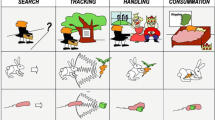Summary
The paper presents a translation of Appendix 2 of the second volume of Fechner's Zend-Avesta (1851), which contains the first outline of psychophysics as the quantitative science of mind-body relations. Fechner argues that mathematical psychology must be based on observation of physical phenomena, because observation of mental phenomena results in equality judgments only. The logarithmic formula is not yet based on Weber's law, but on various observations showing that mental intensities increase at a slower rate than the corresponding physical intensities. The physical substrate of mental phenomena is oscillatory and can be decomposed into a main wave and “ripples” superimposed on it, a conception which is illustrated by attentional phenomena and by sleeping and waking. The notion of negative sensations is introduced and discussed. A variant of the logarithmic law is proposed for higher mental activities. Throughout, Fechner's main concern is with what he called “inner psychophysics” in his later writings.
Similar content being viewed by others
Author information
Authors and Affiliations
Additional information
Translated and edited by Eckart Scheerer
Selection from: G. T. Fechner, Zend-Avesta;; oder über die Dinge des Himmels und des Jenseits, Leipzig: Voss 1851, Vol. 2, pp. 373–386
Rights and permissions
About this article
Cite this article
Fechner, G.T. Outline of a new principle of mathematical psychology (1851). Psychol. Res 49, 203–207 (1987). https://doi.org/10.1007/BF00309027
Issue Date:
DOI: https://doi.org/10.1007/BF00309027




